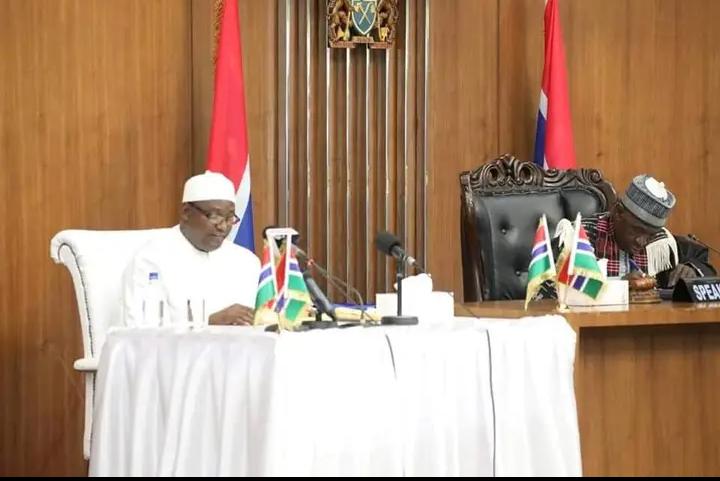Magistrate Muhammed Krubally, who doubles as Chairman; Gambia Federation of The Disabled, has called on the government, NGOs, and other stakeholders to help in the implementation of the disability bill that has been passed at the National Assembly on Tuesday 29 June 2021 and assented by President Adama Barrow on 6 July 2021, referred to as persons with disability bill 2021.
The bill seeks to safeguard persons with disability against stigma and discrimination and also to safeguard persons with disability against exploitation and as well as provide access to physical environment, training, employment and access to services provided by the public body.
In an exclusive interview with NewDay, Magistrate Krubally said his main concern on the bill is the implementation and called on people to respect and uphold the fundamental rights of persons with disability provided in the bill. “I’m still worried about the implementation,” he said.
Adding that Section 11 of the disability act talks about composition of the disability advisory committee. “The committee is established under article (8) of the act to establish a national disability advisory committee,” he explained.
According to him, the bill had been at the parliament for a decade just for it to become a law. He said bill had been unanimously passed by the National Assembly members. He confirmed to the NewDay that the federation is now working on the popularization and implementation of the bill.
“We are very glad to have the disabled bill passed; it is the most guaranteed legislation we have apart from the constitution of the land that ensures respect, promotion and protection of all our fundamental rights and freedoms,” he said.
Asked about their expectations on the bill; he said the federation expects the government, NGOs, Individuals and other authorities to respect and uphold the fundamental rights of persons with disabilities that are set in the bill.
Magistrate Krubally said they worked tirelessly to ensure that the provisions of the bill are respected by all duty bearers and individuals at all times. Responding to questions about how they get the information of the bill being assented to, he responded: “I received a text message from someone working with the ministry of women, gender and social wealth fare affairs who informed me that the bill has been assented.”
The message he conveyed to the NewDay read: “good afternoon your worship, for your information the President of the republic has finally assented to the bill and now it is high time we put all hands on deck and work towards popularization and implementation of the bill,” end of the message.
He said after receiving the information, he was so excited and he immediately sent a text message to all the pages of persons with disabilities. “I informed them that we have ‘good news’ since the bill had been passed on Tuesday 6 July 2021.” He recalled that the president was given statutorily 30 days to assent to the bill but within that period, the president successfully assent to the bill, chairman Krubally told NewDay.
Mr. Krubally further stated that the federation will still engage National Assembly members, other government ministries, NGOs and Partners to see how they can popularize the bill and to further sensitize the government and the society to promote respect and protection of the bill. “We are optimistic that the fundamental rights and freedoms set in the bill will be uphold and respected by all sundry,” he said
He said everyone is expected to respect existing laws and people have no excuse or no cause to depart from respecting those existing laws. He stressed that individuals, government authorities should now be ready for lawsuits to be filed against them for any misconduct against persons with disabilities.
He noted that whoever disrespect these laws, the federation will file a lawsuit for the court to make and order for respect if the law.
Here are some of the clauses that the bill seeks to address:
The bill in Clause 37 indicates that any person who denies a person with disability in respect to right to care services has committed an offense.
The bill in Clause 30 advocates for the prevention of persons with disability against matters such as road safety and in Clause 31, it provides measures of rehabilitation of persons with disability.
It also advocates in Clause 32 for vocational rehabilitation and employment of persons with disability, and in Clause 33, it provides for education, especially the provision of assistive services during exams by the Government and their training as well.
Clause 34 prohibits discrimination in learning institutions and services against person with disabilities, while Clause 36 aims to provide employment for person with disability and that the position of the Executive Secretary be changed to Director and Clause 37 provides to safeguard continuation of employment for person with disabilities at work place.
In Clause 38, the bill provides for the prohibition of termination of employment of person with disability, and that any employer who discriminates against a person with disability, in relation to his or her disability, unless the employer can provide proofs, or otherwise would amount to an offense on conviction to fine of D100, 000.
By Dawda Baldeh






Leave A Comment